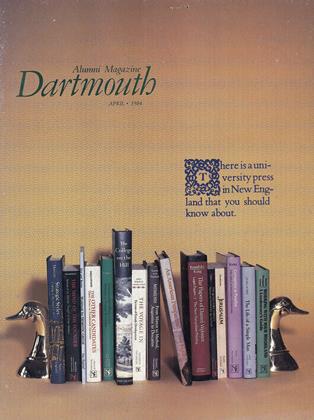STRA TEGY ZONING: THE KEY TOREAL ESTATE WEALTH
by Leslie M. Geller '52Prentice Hall, 1983. 320 pp.,$24.95, cloth.
I recently completed a book on the economics of zoning laws. Aware that zoning is, to the uninitiated, about as exciting as a Mondale campaign speech, I considered titling it "Sex and the Single Zoning Administrator." Leslie Geller has adopted a different, and, I suspect, more alluring tactic. His Strategy Zoning sports a prominent
cover blurb: "An essential guide for investors and for real estate and land use professionals the winning strategies, major trends, leading cases, and awesome profit potential." I am happy to report that the book is all its cover promises, right down to the Valley speak hyperbole.
The book describes in straightforward language what zoning involves and how it may be altered to accommodate the wishes of a developer. There are extensive citations to relevant cases, good descriptions of the more important controversies, and quotations (perhaps a few too many) from helpful opinions. Chapters are arranged by the type of problem a developer or attorney might encounter: obtaining variances, using expert witnesses, and relaxing sign restrictions. Most chapters are brief and to the point. There is refreshingly little attention to legal and planning theories.
Although Geller's book avoids polemics, it does have a point of view. Its thesis is that zoning laws often impose unreasonable restrictions on development, but that many, if not most, such regulations can be dealt with by the strategies indicated in the book. I agree with the first proposition but think Geller is too optimistic on the second. Not that there is anything wrong with his advice. He suggests, for example, that a landowner who seeks a variance should personally visit neighboring homeowners before the zoning hearing to try to defuse opposition by negotiation and compromise. That such common sense tactics are rarely used may explain why our courts are so clogged. What compromises Geller's thesis is "the awesome profit potential" of rezonings. Economics teaches us that excess profits are usually short lived. Potential profits from rezonings are large and persistent. That means that a lot of people must be trying to get development permission but not succeeding. Maybe it's because they have not yet read Geller's book, but I suspect it is more than that.
The problem is that the legal cards are very much stacked in favor of community authorities and against the developer. The latter chapters of StrategyZoning tell how developers can deal with the bias. The suggested strategies are good ones, but the developer's chances still seem slim. For example, much is made of the New Jersey "Mt. Laurel II" court decision, which ordered communities to rezone for low income housing. Geller sees this as a window of opportunity for all developers. I hope he is right, but I suspect that private developers will not fare well under Mt. Laurel doctrine. Communities ordered to accommodate the poor along with the rich may simply decide to halt growth altogether. New devices such as zoning for agriculture (based on the canard that we are run- ning out of farmland) may enable them to shut the door on everyone.
Although Geller's book is not directed at a scholarly audience, it does pose an important question for social policy. Why is this book necessary? Why should a developer who proposes a normal, inoffensive use for his or her property have to map out a costly legal battle plan which, even if it is done well, may not succeed? If Strategy Zoning stimulates any response to this basic question, it will have done a public service as well as provided an excellent guide for its intended audience.
Professor Fischel is a member of theDepartment of Economics at the College, teaching, among other subjects,land use economics and economic analysis of legal problems.
 View Full Issue
View Full Issue
More From This Issue
-
 Cover Story
Cover StoryConsortium
April 1984 By Shelby Grantham -
 Feature
FeatureHanover Sabbatical
April 1984 By Robert Conn '61 -
 Feature
FeatureCenters of Excellence and the Survival of Creativity
April 1984 By O. Ross Mclntyre '53 -
 Feature
FeatureRobert Frost Keeps Me Company Often Uninvited
April 1984 By Kenneth Andler '26 -
 Article
ArticleIt's Just Like Talking to People
April 1984 By Debbie Schupack '84 -
 Class Notes
Class Notes1959
April 1984 By William G. Long
William A. Fischel
Books
-
 Books
BooksTHE BIRDS OF MASSACHUSETTS AND OTHER NEW ENGLAND STATES
MAY 1930 By B. B. Leavitt -
 Books
Books"THE PRESTIGE VALUE OF PUBLIC EMPLOYMENT,"
FEBRUARY 1930 By Charles Leonard Stone -
 Books
BooksTHE HOLY SLICE.
February 1974 By H. KARL LUTGE -
 Books
BooksEDUCATION AND LIFE
January, 1931 By H. M. Dargan -
 Books
BooksDEVIANT BEHAVIOR AND CONTROL STRATEGIES.
February 1975 By RAYMOND L. HALL -
 Books
BooksALGEBRA
MARCH 1967 By WILLIAM R. COGSWELL '61



